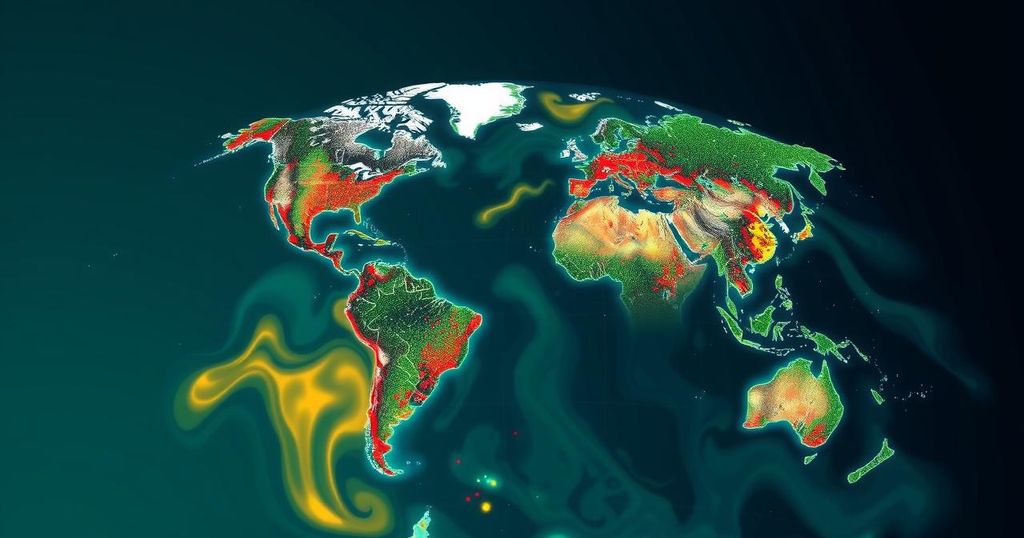Artificial intelligence is enhancing climate modeling, delivering more accurate predictions essential for policy-making. At COP29, discussions underscore the reliance on computer models that simulate climate change impacts and mitigation costs. As AI improves model precision, it facilitates better-informed decisions crucial for tackling climate issues.
Artificial intelligence (AI) is transforming the landscape of climate modeling, providing more precise predictions that can significantly influence policy decisions. During COP29, the United Nations climate conference in Baku, discussions primarily revolve around data derived from advanced computer models. These models not only forecast the potential impacts of climate change but also assess the cost-effectiveness of various mitigation strategies. Enhanced accuracy in these models promises to inform more effective climate policies, ultimately aiding in the global fight against climate change.
The utilization of AI in climate modeling represents a significant advancement in the collective efforts to understand climate dynamics. As climate crises escalate in severity, accurate modeling becomes essential for anticipating outcomes and crafting strategies to address these changes. AI enhances data analysis capabilities, allowing for more nuanced insights into climate variables and their interactions. This shift towards AI-driven modeling is particularly pertinent in international forums like COP29, where data-driven decisions are paramount for global cooperation in addressing climate change.
In conclusion, the integration of artificial intelligence into climate modeling yields profound implications for policy-making. By producing more reliable and detailed predictions, AI has the potential to shape effective strategies against climate change. As demonstrated at COP29, climate models are not merely tools for prediction, but critical resources that can inform and inspire global climate action. The future of environmental policy will increasingly depend on the accuracy of these sophisticated models, ultimately enhancing efforts to mitigate climate impacts.
Original Source: www.economist.com






